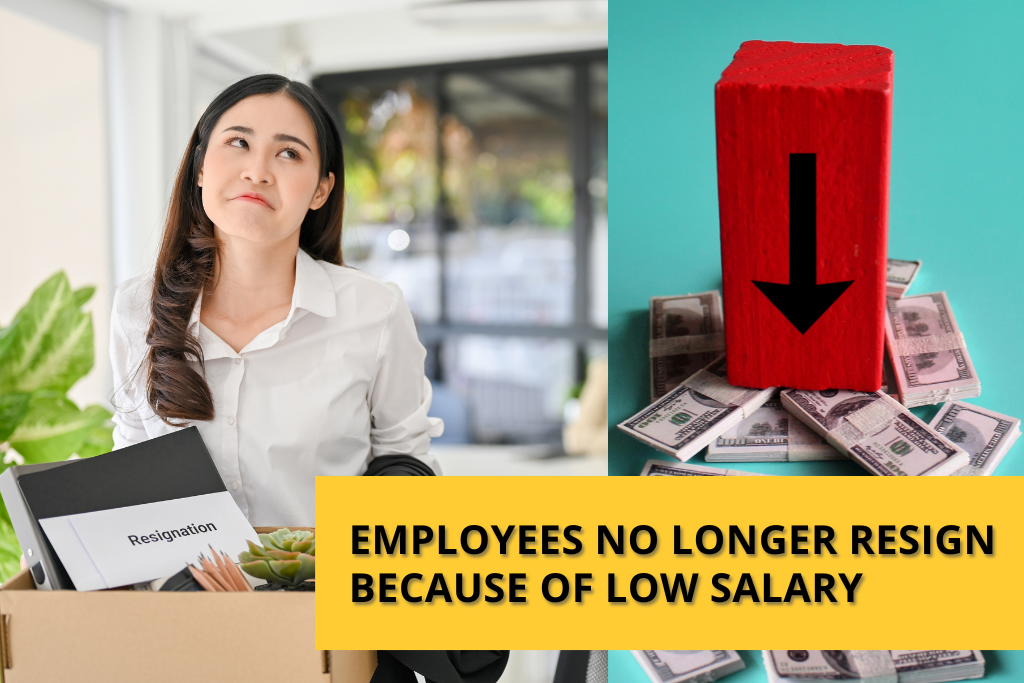Hello employers, have you noticed that employees no longer resign because of low salary anymore? It’s true—the reasons people decide to move on from their jobs are changing along with the world around us. In today’s workplaces, it’s about more than just the paycheck. Things like company culture, opportunities to grow, and having a good work-life balance matter a lot to employees these days. For employees or job seekers who are looking for new opportunities, feel free to visit JobMajestic.com and utilize our AI (TRAIN) for your job search.
Here are a few common reasons why employees today may want to resign:
1. Inflexibility
Workplace inflexibility can push employees to think about resigning because it makes it hard to balance work and personal life. When workplaces stick to rigid schedules or remote work rules, employees find it tough to manage outside responsibilities, leading to more stress and burnout. Also, inflexible workplaces might not consider employees’ personal needs like medical appointments or caregiving, affecting their well-being and job satisfaction.
2. Unclear / ever changing job scope
Unclear or changing job scopes can cause employee dissatisfaction and drive them to consider resigning. When employees don’t understand their responsibilities or face frequent changes in their roles, it leads to confusion, stress, and reduced job satisfaction. Unclear expectations make it hard for employees to perform well and meet goals, affecting their confidence and morale. Constantly evolving job scopes create instability and disrupt workflow, causing frustration and a sense of inefficacy. Without clarity and consistency in job roles, employees may feel undervalued and uncertain about their contributions, pushing them to look for roles with clearer expectations and defined responsibilities.
3. Unhealthy office environment
When the workplace doesn’t have good ventilation, comfortable furniture, or proper lighting, it can cause physical discomfort and health problems like fatigue, headaches, or muscle issues. A toxic work culture with bullying, harassment, or too much stress can also hurt employees’ mental well-being and job satisfaction. Poor communication, lack of support from management, or struggles with work-life balance can make things worse. Ultimately, an unhealthy office not only affects productivity and morale but also drives employees to look for jobs where their well-being is a priority and the workplace is positive and supportive.
4. Office politic
Office politics can make employees want to resign because it creates a bad atmosphere at work. When people play politics, it can lead to unfair treatment and favouritism based on personal relationships instead of fairness. This makes employees feel frustrated and stressed out. It also hurts teamwork and makes people less productive. When employees see that promotions or rewards are given based on who you know rather than how well you perform, they may feel unappreciated and unhappy. This can make them want to find a job where people are treated fairly and work is more about doing a good job than playing politics.
5. Unappreciated / non-rewarding
When employees feel like their hard work isn’t recognized or valued by their employer, it can make them feel unmotivated and unhappy. Without proper acknowledgment for their efforts or opportunities to grow in their careers, employees may start looking for other jobs where they feel more appreciated and rewarded for their work. A workplace that doesn’t appreciate or reward employees risks losing talented people who want recognition and opportunities to advance.
Subscribe to Our Jobseeker Newsletter
Subscribe to our newsletter to receive job search tips from us and personalized job recommendations from our AI, TRAIN!
Subscribe to Our Employer Newsletter
Elevate your hiring journey with our AI, TRAIN, which matches talents to your needs and provides applicant analytics. SUBSCRIBE NOW!
Subscribe to Our Jobseeker Newsletter
Subscribe to our newsletter to receive job search tips from us and personalized job recommendations from our AI, TRAIN!
Subscribe to Our Employer Newsletter
Elevate your hiring journey with our AI, TRAIN, which matches talents to your needs and provides applicant analytics. SUBSCRIBE NOW!
6. Stagnant career growth
Limited career growth often prompts employees to resign. When they feel stuck without opportunities to advance or develop professionally, frustration sets in. This lack of progression leads to stagnation and a feeling of being trapped in their current position, unable to learn new skills or take on more challenges. As a result, employees seek new opportunities that promise better career prospects. Employers should focus on offering clear paths for career development to retain talented employees and keep them motivated and engaged.
7. Absence of guidance / support
When employees don’t receive the direction or help they need to succeed in their roles, they can feel lost or frustrated. This lack of support can slow down their growth and leave them feeling dissatisfied. Without proper guidance, employees may struggle to meet expectations and look for jobs where they can get the support they need to thrive. A workplace that values employee development and provides mentorship is essential for keeping talented staff and helping them succeed.

After Understanding The Reasons
After understanding the reasons behind dissatisfaction, it would be easier to communicate and retain employees by addressing their concerns. However, it’s important to acknowledge that we can’t satisfy every employee. If necessary, some employees may need to be let go to facilitate the company’s growth.
As we navigate the complexities of employee satisfaction and organisational growth, it’s crucial to strike a balance between addressing employee concerns and making tough decisions when necessary. While our goal is to retain and support our workforce, we must also recognise that not every individual’s expectations can be met within the framework of our organisation’s evolving needs.
Conclusion
Ultimately, fostering open communication and actively addressing dissatisfaction can strengthen our team’s cohesion and morale. However, in cases where parting ways becomes unavoidable for the betterment of the company’s trajectory, we must approach such decisions with fairness and consideration.
By fostering a culture of understanding and accountability, we can navigate these challenges while striving for sustained growth and success, anchored by a committed and aligned team.
![]()







